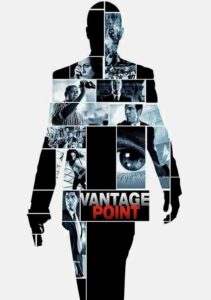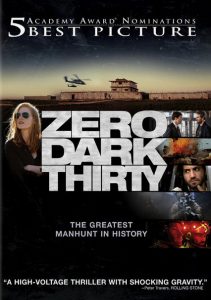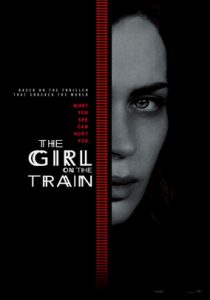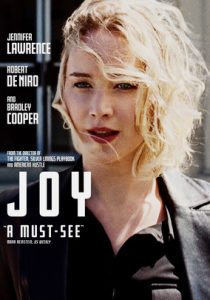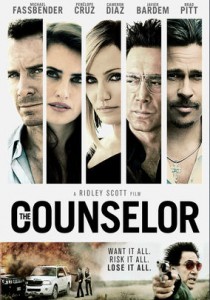Vantage Point-2008
Director Pete Travis
Starring Matthew Fox, Dennis Quaid, Forest Whitaker
Scott’s Review #1,271
Reviewed June 25, 2022
Grade: B-
The premise of Vantage Point (2008) is clever and hook-laden stirring up the feeling of intrigue. After all, the idea of several ‘vantage points’ to one perilous event, in this case, an assassination in a European country, exudes promise, and excitement.
An imagined fun game of whodunit or what happened to whom and when and from whose perspective prompted me to want to see this film.
The trailer looked good.
The film doesn’t satisfy and feels like a muddled mess with little character development and surprisingly mediocre acting given its A-list cast. The dialogue is forever repetitious with characters yelling out the same expletives in frustration that soon results in the incredible, teetering on laughably bad.
It plays too much like a carbon copy of the popular and exceptional television series ’24’ which ran on FOX during the 2000s when Vantage Point was made.
The inspiration, Vantage Point borrows heavily from the political thriller theme setup and the day-in-the-life concept popular during this decade. The editing is rapid-fire quick.
I was able to struggle to find a couple of redeeming values in the otherwise forgettable film.
Usually, seeing a film on the big screen in a slick, air-conditioned movie theater is a treat and increases my enjoyment of it, and that matters here.
In the case of Vantage Point, this raised its final grade from a mediocre C+ to a not much improved and generous B- score.
A stellar company of actors including Dennis Quaid, Sigourney Weaver, Forest Whitaker, William Hurt, and others joins Matthew Fox, hot at the time for his lead role in the massively successful ABC television series, Lost.
Did these actors read the script before signing on?
Witnesses with different points of view try to unravel an assassination attempt on U.S. President Henry Ashton (Hurt) while he is giving an important speech in Salamanca, Spain.
Special Agents Thomas Barnes (Quaid) and Kent Taylor (Fox) are assigned to protect Ashton during the summit on the war on terror. Television producer, Rex Brooks (Weaver), directs news coverage while American tourist Howard Lewis (Whitaker) films the audience.
After the leader’s arrival, shots ring out, and Ashton is down. In the resulting chaos, Howard comes forward with his camcorder, which he believes contains an image of the shooter.
Everyone attempts to solve the mystery by giving different accounts of what transpired.
Vantage Point is fantastic for about the first thirty minutes until it quickly runs out of gas. The setups are rapid with Rex, Howard, Barnes, and Taylor experiencing different perspectives and the film moves around in the timeline from pre-shooting to post-shooting well.
The novelty wears thin once the perspectives are revised repeatedly and the plot becomes unnecessarily complicated and downright convoluted.
This makes a normally fast running time of one hour and twenty-nine minutes feel like a lifetime commitment.
Comparisons that I’ve heard to a 1950 Japanese film called Rashomon which unfortunately I have never seen are laughable.
My hunch is that the art film is worlds away from the slickly Americanized Vantage Point and a slow build in the former is superior to the quickly edited mainstream latter.
Vantage Point (2008) is not a well-remembered film nor should it be. There is no reason to watch it a second time. A better choice is to watch the series 24 again instead.
It’s nearly the same with one being superior.
